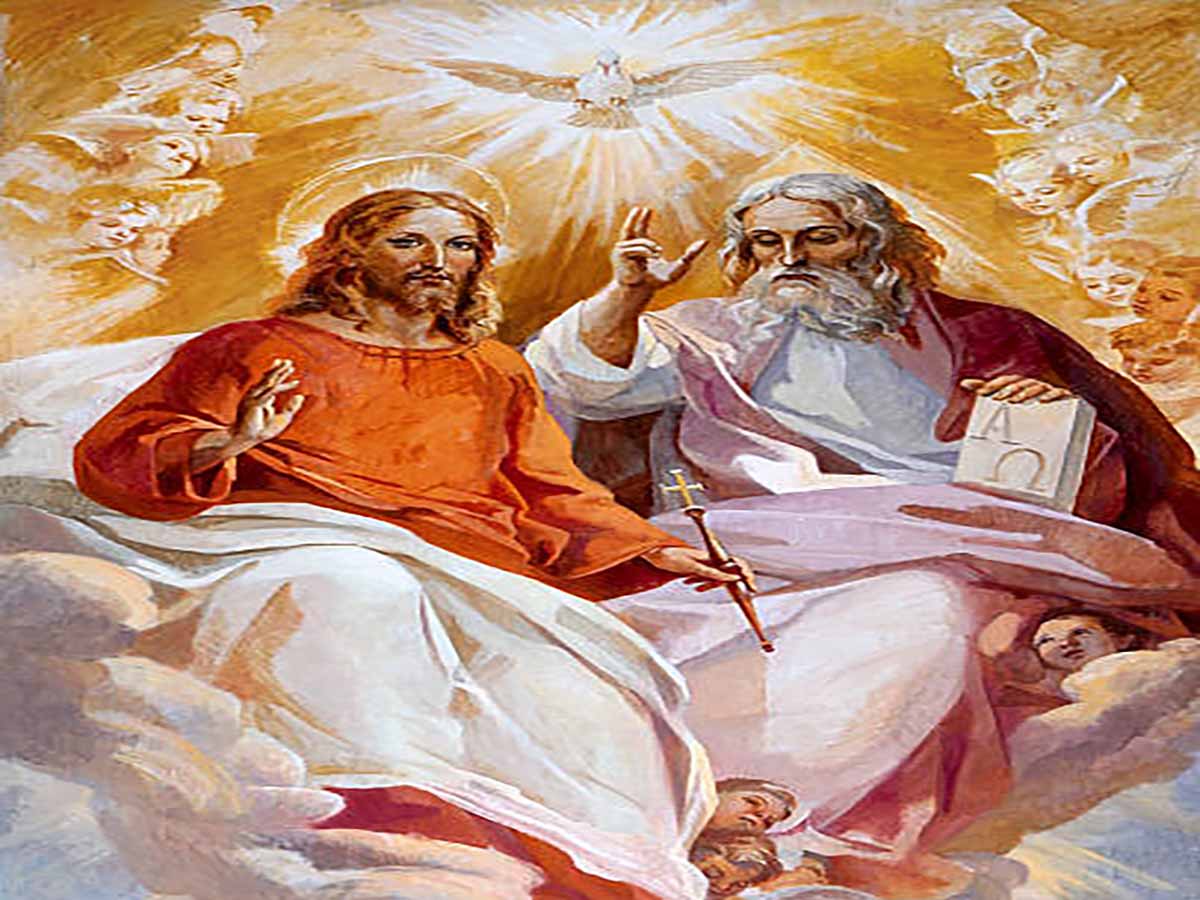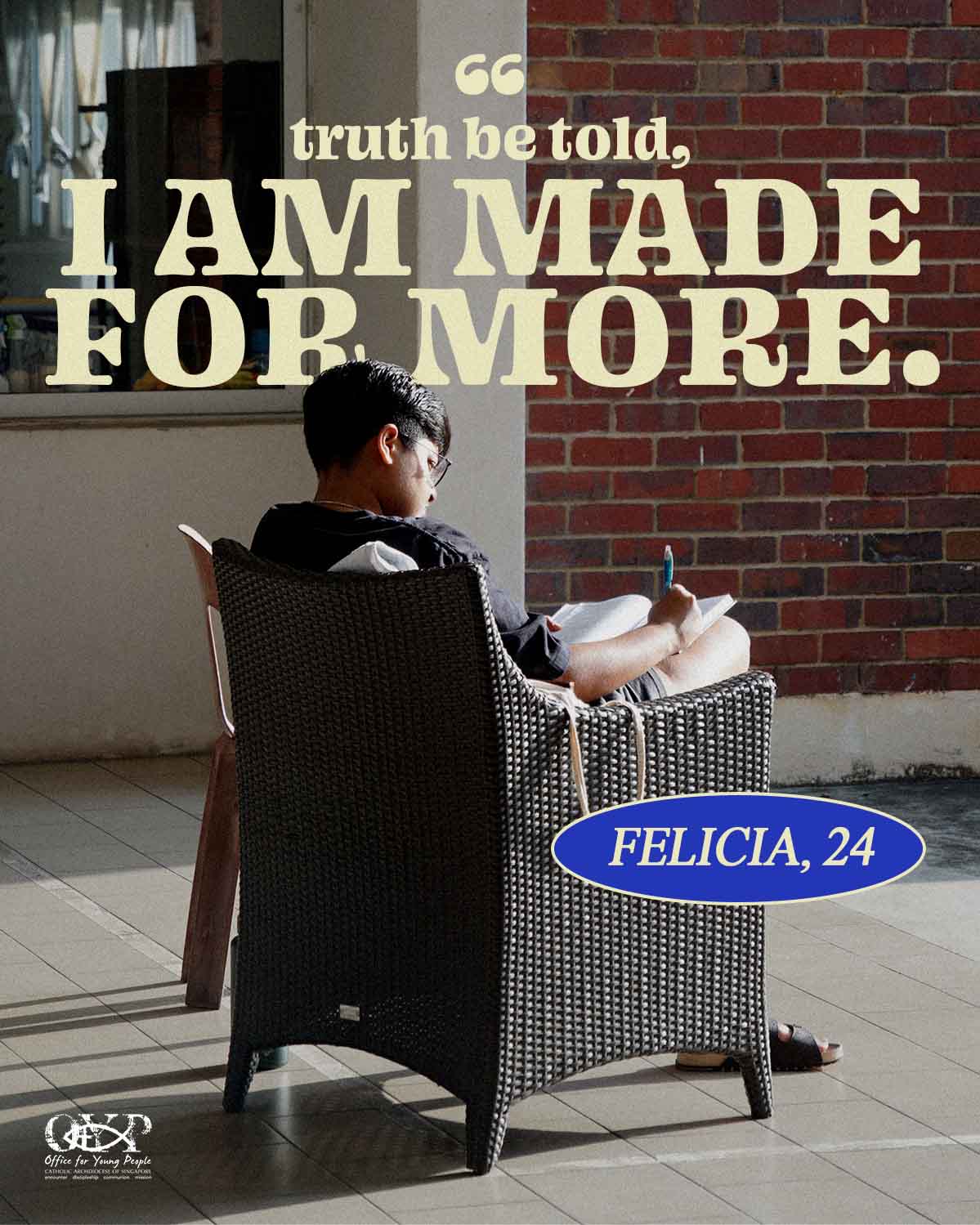By Joanna Ong
In our diverse society today, there seem to be religions with many Gods. So do Catholics have more than one God? No, Catholics only worship one God. Then what do we mean by a 3-in-1 God? Who is the Trinity? How can we worship one God but 3 at the same time?
The Holy Trinity is made of The Father, the Son and the Holy Spirit. “The Trinity is one, we do not confess three Gods, but one God in three persons, the “consubstantial Trinity”.” (CCC 253) All 3 persons are “distinct from one another. God is one but not solitary.” (CCC 254) Although this can seem confusing and hard to explain, this is a mystery of the faith that can never be known unless revealed by God. “To be sure, God has left traces of his Trinitarian being in his work of creation and in his Revelation throughout the Old Testament. But his inmost Being as Holy Trinity is a mystery that is inaccessible to reason alone or even to Israel’s faith before the Incarnation of God’s Son and the sending of the Holy Spirit.” (CCC 237)
Many will try to explain the Trinity with different analogies. However it is important for us to check if these analogies can lead to heresies if they are taken too literally. We can do a fact check by looking at these criterias:
- The 3 persons are one
- The 3 persons are distinct from one another
- All 3 persons are of the same substance
- Common work of the 3
(CCC 253-258)
In these, we can see that analogies that are often heard would be incorrect. For example:
- Some say that the Trinity is like 3-in-1 coffee. Each person of the Trinity is one of the 3 ingredients: coffee powder, sugar and milk powder. This cannot be compared to the Trinity as each ingredient is a different substance while the Trinity consists of 3 persons of the same substance.
- Other say that the Trinity is like the three-leaf clover, which consists of a clover that is made of 3 leaves. All the leaves may be the same substance but the distinctiveness of each leaf can lead to the idea that God exist as three separate parts (or tri-theism)
- Yet others say that the Trinity is like water in its ability to be solid, liquid, and gaseous, but this can lead to turning the Trinity into three modes of God’s existence (modalism) instead of three persons (or modalism). This is untrue as the Trinity consists of 3 persons which are distinct from one another.
The Father revealed by the Son
Did you know? Jesus referred to God as His Father more than 150 times in the bible! In the Trinity, the Father is revealed by the Son. By calling God “Father”, this language of faith indicates that:
- “God is the first origin of everything and transcendent authority”
- “He is at the same time goodness and loving care for all his children.”
“The language of faith thus draws on the human experience of parents, who are in a way the first representatives of God for man.” (CCC239)
The Holy Spirit
Although the third person in the Trinity tends to be overlooked, the eternal origin of the Spirit is not unconnected with the Son’s origin. The Holy Spirit, the third person of the Trinity, is God, one and equal with the Father and the Son, of the same substance and also of the same nature. (CCC234).
“In the liturgy, the Holy Trinity is teacher of the faith of the People of God and artisan of “God’s masterpieces,” the sacraments of the New Covenant. The desire and work of the Spirit in the heart of the Church is that we may live from the life of the risen Christ.” (CCC1091). “The preparation of hearts is the joint work of the Holy Spirit and the assembly, especially of its ministers. The grace of the Holy Spirit seeks to awaken faith, conversion of heart, and adherence to the Father’s will.” (CCC1098).
To summarise, the Spirit:
- Prepares the assembly to encounter Christ
- Recalls and manifests Christ to the faith of the assembly
- Makes the saving work of Christ present and active by His transforming power
- Bears the fruit of communion in the Church
Addtional Resources:
a. Catholic Answers – It’s Okay Not to Understand the Trinity
https://www.catholic.com/magazine/online-edition/its-ok-not-to-understand-the-trinity
b. Catechism of the Catholic Church





